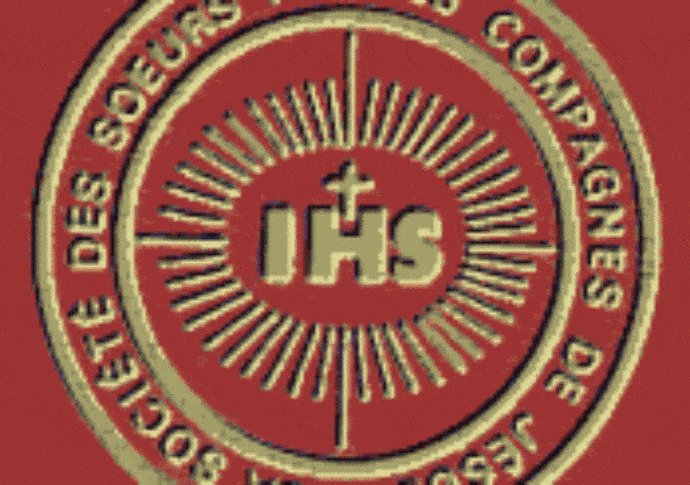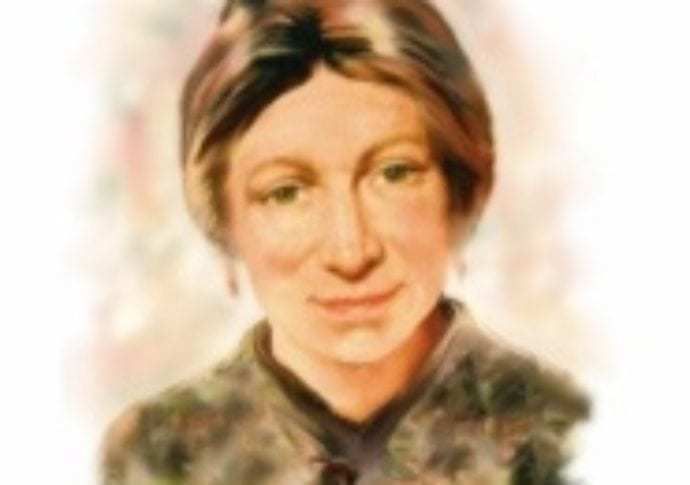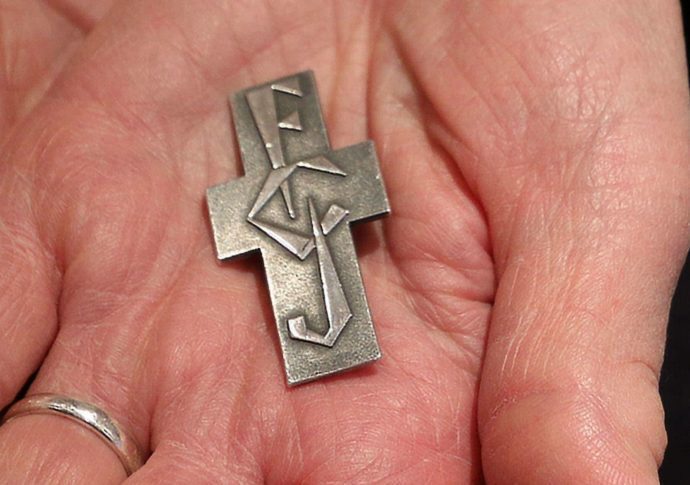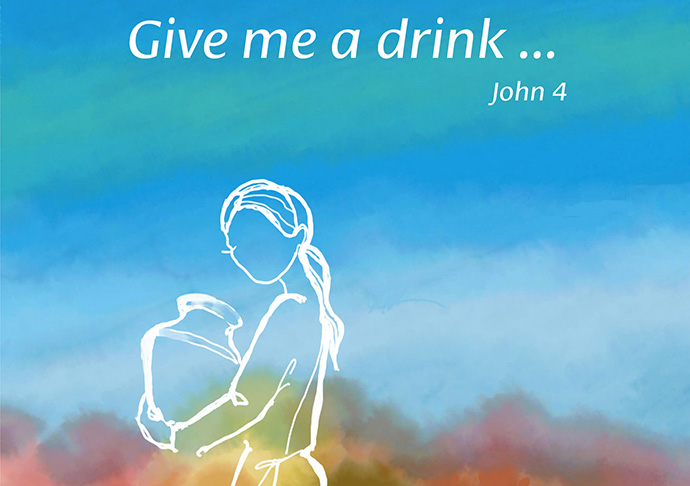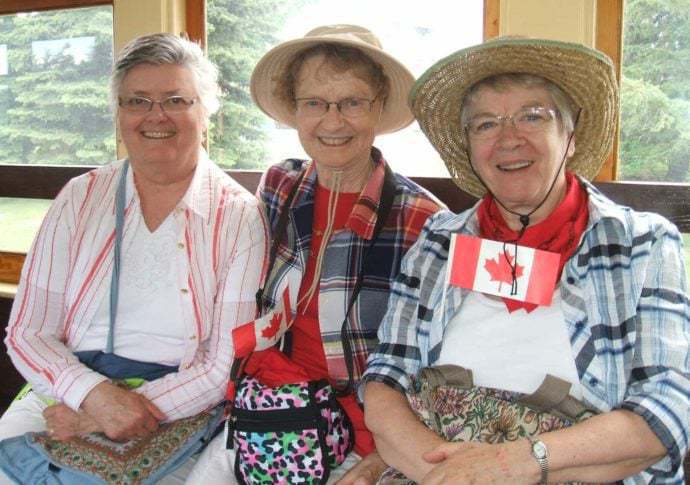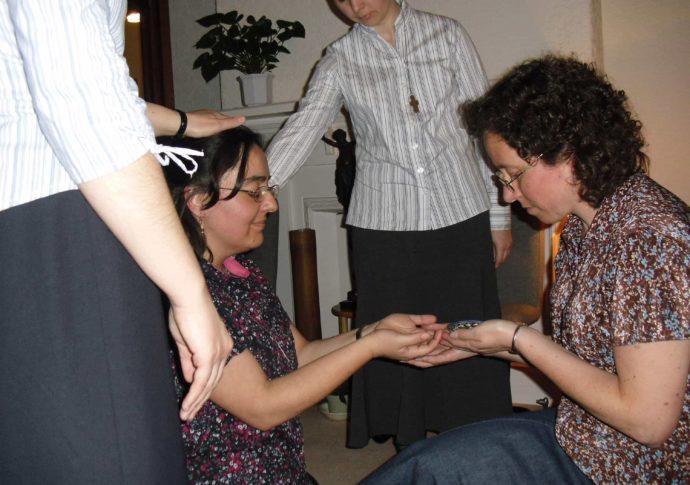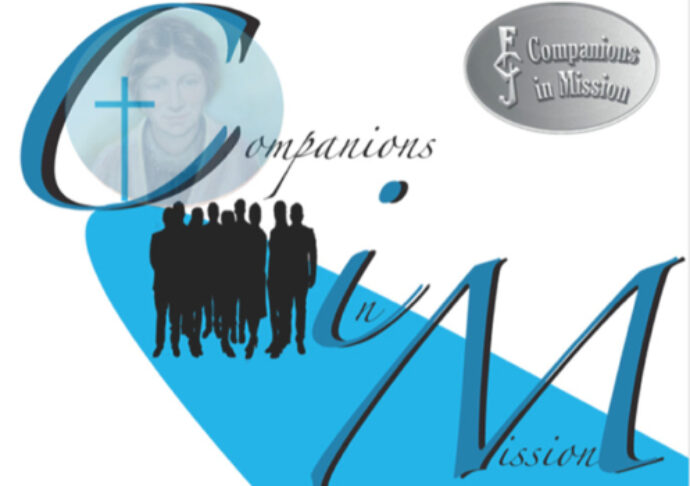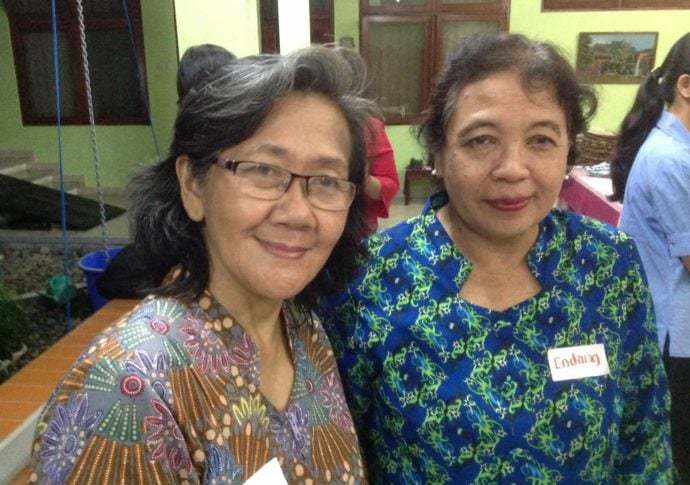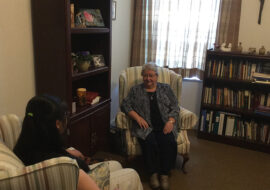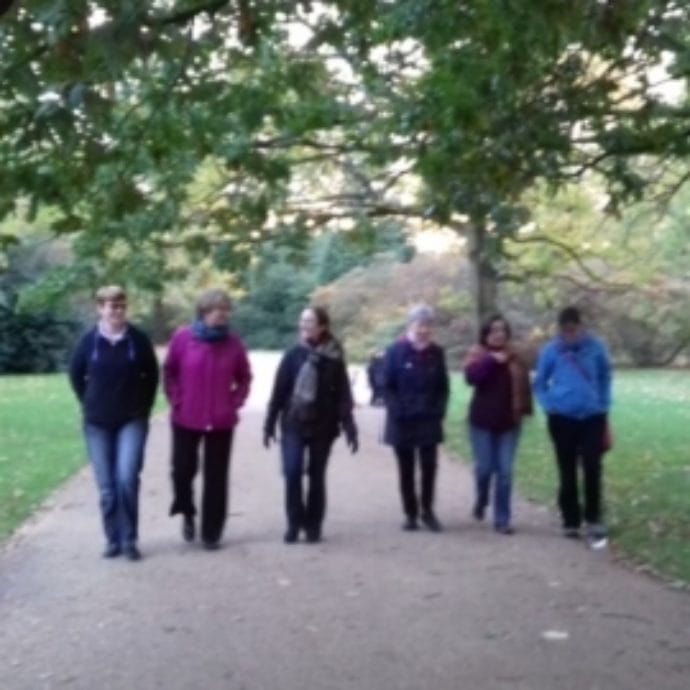A reflection by Sr Lynne fcJ from FCJ Centre St Hugh’s, in Liverpool, first appeared in the FCJ Sisters Blog
As part of our Why Hope? series celebrating the Jubilee Year, we reflected yesterday on the theme of Pentecost.
The Holy Spirit Comes at Pentecost (Acts 2)
2 When the day of Pentecost came, they were all together in one place. 2 Suddenly a sound like the blowing of a violent wind came from heaven and filled the whole house where they were sitting. 3 They saw what seemed to be tongues of fire that separated and came to rest on each of them. 4 All of them were filled with the Holy Spirit and began to speak in other tongues[a] as the Spirit enabled them.
5 Now there were staying in Jerusalem God-fearing Jews from every nation under heaven. 6 When they heard this sound, a crowd came together in bewilderment, because each one heard their own language being spoken. 7 Utterly amazed, they asked: “Aren’t all these who are speaking Galileans? 8 Then how is it that each of us hears them in our native language? 9 Parthians, Medes and Elamites; residents of Mesopotamia, Judea and Cappadocia, Pontus and Asia, 10 Phrygia and Pamphylia, Egypt and the parts of Libya near Cyrene; visitors from Rome 11 (both Jews and converts to Judaism); Cretans and Arabs—we hear them declaring the wonders of God in our own tongues!” 12 Amazed and perplexed, they asked one another, “What does this mean?”
We were struck by the diversity of people who heard the Word being spoken, as well as the different ways in which the Spirit was revealed to the people listening.
Reflecting on diversity we considered all the ways in which we are created as individuals – with our varied gifts, talents, cultures, preferences etc. God has chosen difference as the way of all created things – and nature sings of the power and beauty of diversity too. God looks at all that is created, and indeed it is ‘very good’.
In Fratelli Tutti [Encyclical Letter on Fraternity and Social Friendship], Pope Francis wrote;
By its very nature, love calls for growth in openness and the ability to accept others as part of a continuing adventure that makes every periphery converge in a greater sense of mutual belonging.
Pope Francis, Fratelli Tutti 95
We are called to stretch our inclusion outwards to embrace others, to be challenged beyond our own needs, likes and dislikes to encounter difference and find a place of openness and belonging.
Some peripheries are close to us, in city centres or within our families. Hence there is an aspect of universal openness in love that is existential rather than geographical. It has to do with our daily efforts to expand our circle of friends, to reach those who, even though they are close to me, I do not naturally consider a part of my circle of interests.
Pope Francis, Fratelli Tutti 97
It’s not a theoretical acceptance and inclusion, bound by my religious beliefs, political allegiance or family bonds, instead it is a deeply personal call that stops at no-one.
The song One Family by Sam Garret spoke to me:
Perhaps it is good to notice where the limits of my inclusion are, to stay with that space, and to wonder… how is the person, group, or part of creation also linked to me as One Family?
The Why Hope? series celebrating the Jubilee Year is a collaboration of FCJ Centre St Hugh’s, in Liverpool and FCJ Centre for Spirituality and EcoJustice in London. Check our events page for opportunities to participate.



